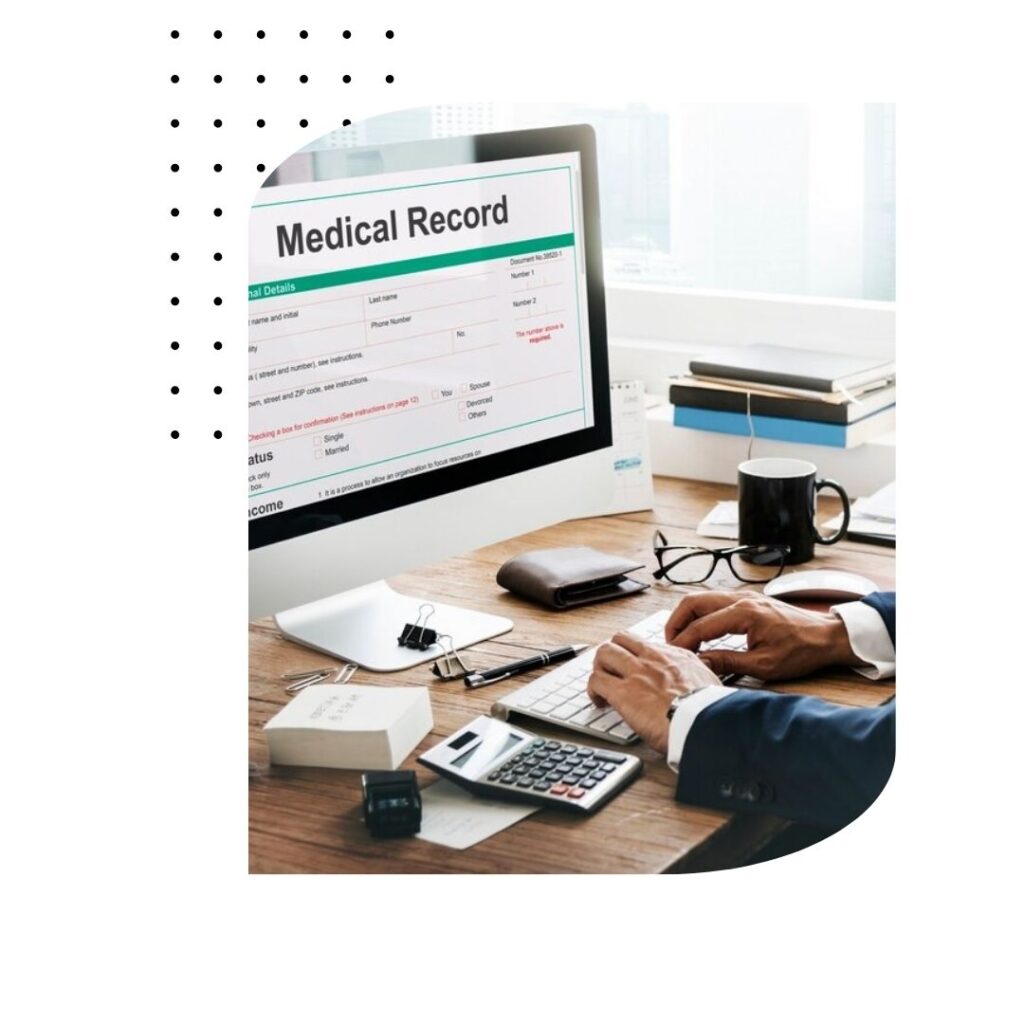
Medical Billing
Medical billing is a crucial process in the healthcare industry that involves translating healthcare services into billing claims to ensure healthcare providers receive payment from insurance companies and patients. At VZTrans , we excel in this complex process by encompassing several key steps: patient registration, insurance verification, charge entry and coding, claims submission, payment posting, accounts receivable management, denial management, and patient billing.
Our comprehensive approach maximizes revenue, reduces errors, and ensures compliance with regulations like HIPAA. Effective medical billing is essential for the financial stability and smooth operation of healthcare practices. VZTrans facilitates accurate and timely reimbursement, allowing healthcare providers to focus on delivering quality patient care without worrying about financial management. Partnering with VZTrans ensures that your billing process is handled with expertise, efficiency, and dedication.
- Collecting and verifying patient information, including personal details, insurance information, and medical history.
- Ensuring all necessary information is accurate and up-to-date for billing purposes.
- Confirming patient insurance coverage and eligibility before services are provided.
- Identifying co-payments, deductibles, and coverage limits to avoid claim denials.
- Recording and coding the services provided to the patient using standardized codes (CPT, ICD-10, HCPCS).
- Ensuring accurate and appropriate coding to reflect the services rendered.
- Preparing and submitting claims to insurance companies electronically or via paper.
- Adhering to payer-specific guidelines to prevent claim rejections and delays.
- Recording payments received from insurance companies and patients.
- Adjusting patient accounts to reflect payments, adjustments, and write-offs.
- Monitoring unpaid claims and following up on outstanding balances.
- Managing aged accounts receivables to ensure timely payments and minimize bad debt.
- Identifying and addressing reasons for claim denials.
- Resubmitting corrected claims or appealing denied claims to ensure proper reimbursement.
- Issuing statements to patients for balances due after insurance payments.
- Handling patient inquiries and providing clear explanations of charges.
- Ensuring all billing practices comply with healthcare regulations such as HIPAA.
- Staying updated with changes in billing codes, payer policies, and healthcare laws.
- Generating detailed financial reports to track the practice’s revenue cycle performance.
- Analyzing data to identify trends, improve processes, and enhance financial health.
Importance of Medical Billing
- Revenue Optimization: Effective medical billing ensures healthcare providers receive timely and accurate payment for services, maximizing revenue and cash flow.
- Error Reduction: Proper billing practices minimize coding errors, claim denials, and payment delays.
- Patient Satisfaction: Clear and accurate billing helps maintain transparency and trust with patients, reducing confusion and disputes.
- Regulatory Compliance: Adhering to healthcare regulations prevents legal issues and protects the practice from potential fines and penalties.

Challenges in Medical Billing

- Complexity: The billing process involves various steps and adherence to numerous payer-specific rules and regulations.
- Constant Changes: Frequent updates to coding systems, insurance policies, and healthcare laws require continuous education and adaptation.
- Denials and Rejections: Handling denied and rejected claims requires diligent follow-up and resolution strategies.
- Patient Communication: Explaining billing details and handling patient inquiries demand clear communication and customer service skills.
Solutions for Effective Medical Billing:
- Training and Education: Regular training for billing staff on the latest coding updates and billing practices.
- Technology Integration: Utilizing advanced billing software for automation, accuracy, and efficiency in claims processing.
- Outsourcing: Partnering with specialized medical billing companies to handle the entire revenue cycle, allowing healthcare providers to focus on patient care.

